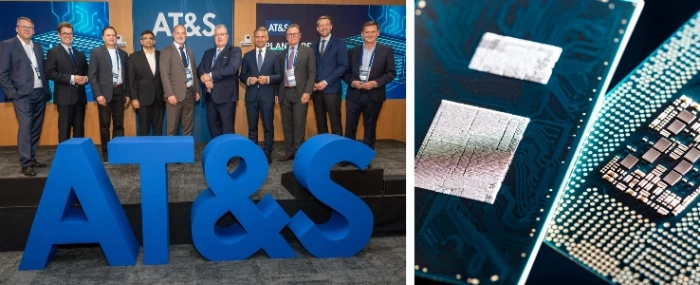
AT&S opens Europe’s first IC substrate plant facility in Leoben
Austrian microelectronics and PCB manufacturer AT&S has officially inaugurated Europe's first local research and production centre for IC substrates.
After three years of construction, the 11,000-square-metre, EUR 500 million facility “Hinterberg 3” (HTB3) at the company’s headquarters in Leoben-Hinterberg is now operational, employing 420 people.
With the new “Competence Centre for R&D and IC Substrate Production”, AT&S becomes the first and only company in Europe with local capabilities for developing and producing IC substrates – critical components that deliver power and data to semiconductors in high-performance microchips. The opening of HTB3 is therefore seen as a first, significant step for the EU to establish an independent microelectronics industry.
“Microelectronics is one of the key technologies of the digital age, without it artificial intelligence is inconceivable. AI needs not only powerful software but also the right hardware. With AT&S, Austria has a global high-tech champion proving that we are capable of much more than just mid-tech,” said Austria’s Federal Minister for Economic Affairs, Energy and Tourism, Wolfgang Hattmannsdorfer, in a press release.
The site was developed with support from the EU's Important Projects of Common European Interest (IPCEI) initiative. The Austrian government is contributing nearly EUR 400 million toward two IPCEI microelectronics projects as part of its broader push for high-tech industrial progress.
“Europe needs to stay in control of key technologies for today and the future – and microelectronics is one of them. Without it, there is no AI, no quantum computing, no sustainable energy,” said AT&S President & CEO Michael Mertin. “Microelectronics is essential for Europe’s long-term success. IC substrates are a vital part of this, as every modern microchip – whether in AI data centers, green power plants, or smartphones – requires IC substrates to interface with memory and power supply.”
Mertin also called for stronger policy backing from Brussels, saying; “We need a bold and innovative microelectronics strategy for Europe to regain competitiveness. The European Chips Act is a good start, but it cannot replace a comprehensive microelectronics strategy.”
Initial sample deliveries from the new plant are already underway, and product qualification is progressing as planned



